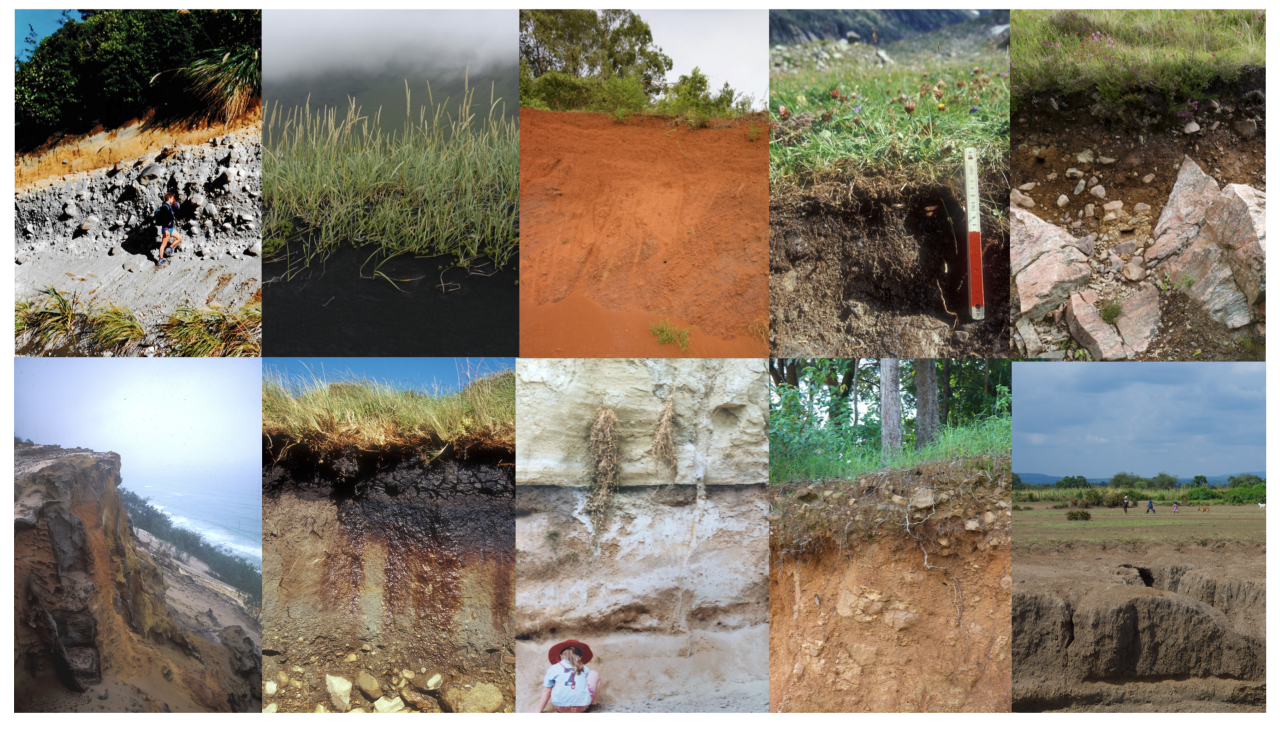Why soil matters more to life than we realise
Researchers call for greater consideration of soil biodiversity and functions in international conservation strategies
A quarter of all known species live in the soil. Life above ground depends on the soil and its countless inhabitants. Yet, global strategies to protect biodiversity have so far paid little attention to this habitat.
In the journal , an international team of researchers, including scientists from The University of 优蜜传媒, calls for greater consideration of soils in the renegotiation of international biodiversity strategies. Their relevance must be recognised far beyond agriculture. In order to make the status and performance of soils more visible, the researchers explain their plan for systematic recording based on common global standards.
If asked which group of animals was the most common on earth, hardly anyone would come up with the right answer. Not ants, not fish, not even humans - it is the nematodes, also called threadworms. Four out of five animals on earth belong to this group. The reason that hardly anyone knows them is that they live below the ground, staying invisible for most of us. Quietly and unnoticed, they perform vital services for the world above them every day - together with thousands of other soil organisms.
Soil is the most diverse habitat of all. Up to 1.5 kilograms of living organisms live beneath one square metre of healthy soil: threadworms, earthworms, springtails, mites, insect larvae, etc. In addition, there are myriads of microorganisms: Bacteria, protists, fungi, and many more. By eating living and dead animal and plant material, they transform it into nutrients – and without these nutrients, new life could not evolve. Without soil organisms, no plants could grow, no people could live.
Scientist now state it is astonishing that soils have so far hardly played a role in international strategies aimed at protecting biodiversity. For the authors of the new Science article, this is a major problem: "If we do not protect soils for future generations", they write, "above-ground biodiversity and food production cannot be guaranteed either". The appeal goes to the 196 states that are negotiating a new strategy for the protection of biodiversity within the framework of the UN Convention on Biological Diversity (CBD).
It is high time to do so: our soils are getting less and less healthy. Professor Richard Bardgett from The University of 优蜜传媒, who contributed to the research and a recent on the State of Knowledge of Soil Biodiversity, said: “Soils are confronted with a battery of pressures, including intensive cultivation, heavy use of fertilisers and pesticides, pollution from contaminants, and sealing by buildings, pavements and roads, which effectively ceases the functioning of healthy soil. On top of this, climate change is putting soils under additional pressure, exacerbating their degradation.”
The Heinrich Böll Foundation, around 24 billion tonnes of fertile soil are lost worldwide every year. As a result, a wide range of services provided by soils, such as the provision of clean water or protection against plant diseases, can no longer be guaranteed. In addition, soils are the most important carbon reservoir on earth and thus help to slow down global climate change.
Soils are confronted with a battery of pressures, including intensive cultivation, heavy use of fertilisers and pesticides, pollution from contaminants, and sealing by buildings, pavements and roads, which effectively ceases the functioning of healthy soil. On top of this, climate change is putting soils under additional pressure, exacerbating their degradation.
According to the researchers, these services are given far too little attention in the political debate. "Up to now, soil conservation has been mostly reduced to the impacts related to soil erosion and its importance for agriculture", said lead author Dr Carlos Guerra of the German Centre for Integrative Biodiversity Research (iDiv) and Martin Luther University Halle-Wittenberg (MLU). "It's about time that soil conservation policies consider the protection of soil organisms and ecosystem functions more than just for food production and other productive systems. Soil biodiversity monitoring and conservation can support the achievement and tracking of many sustainability goals, targeting areas such as climate, food and biodiversity protection."
In order to be able to decide which regions of the world are particularly in need of protection, and which protective measures are appropriate, sufficient information must be available on the status and trends of biodiversity in soils. Since this has not been the case so far, the researchers launched the SoilBON monitoring network.
Professor Richard Bardgett, a partner of SoilBON, said "A major goal of SoilBON is to put soil biodiversity into the focus of policy, both for maintaining and building soil health, but also for biodiversity conservation, which has so far mainly focussed on above ground biodiversity.”
To do this, we must provide policymakers with the necessary information to support decision-making", said senior author Prof Nico Eisenhauer, research group leader at iDiv and Leipzig University. "SoilBON will produce and support the production of the relevant data to achieve this goal."
According to the researchers, the proposed monitoring and indicator framework enables the efficient recording and long-term tracking of the global state of soils and its functions. They emphasise that it can also serve as an important early warning system: with its help, it can be recognised at an early stage whether ongoing measures can achieve the policy targets that have been set.
